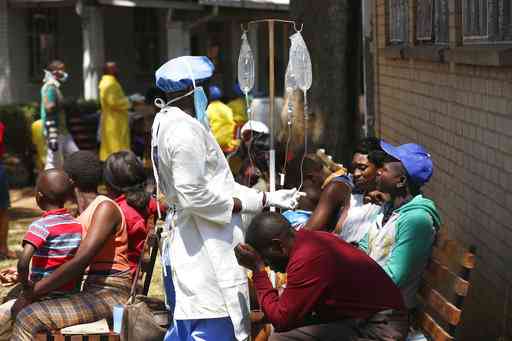
The Zimbabwe Environmental Law Association (Zela) read with concern reports of a cholera outbreak in the country, with cases being reported in Chegutu, Bikita, and Mbire in addition to prevailing outbreaks in neighbouring countries.
Cholera outbreaks are a continental cause for concern, and, in February, the WHO regional office for Africa warned that if the current fast-rising trend of cholera continues, this year’s infections could surpass the number of cases recorded in 2021, the worst year for cholera in Africa in nearly a decade.
An outbreak in Zimbabwe also signals a recurring crisis as it comes on the heels of a devastating cholera epidemic in 2018.
Zela, therefore, views the cholera outbreak in Zimbabwe as a great public health risk that might reverse the long-term progress made against the acute, extremely virulent infection that can spread rapidly and lead to high morbidity and mortality.
As such, the country’s development status is negatively reflected by the ongoing and recurring cholera outbreaks, which are a manifestation of poor and inadequate water and sanitation systems, a leading cause of poverty, morbidity, and mortality.
The shortage of water in major cities has seen many urban dwellers resort to digging wells and sinking boreholes.
However, this has contributed to the spread of cholera because these wells and boreholes were constructed without following proper town planning procedures, including health and safety regulations.
With this situation obtained, Zela joined the world in celebrating World Water Day on March 22, a date dedicated to calling for action and supporting the achievement of Sustainable Development Goal (SDG) 6 — water and sanitation for all by 2030.
- CCC cries foul as Chamisa is blocked
- CCC cries foul as Chamisa is blocked
- Mambo Hermus: Chegutu’s unsung music hero
- Community Builder:Chako doing more than just business
Keep Reading
Commemorated under the theme: Accelerating the change to solve the water and sanitation crisis, World Water Day 2023 aptly focused on the global water and sanitation crisis, which is caused by a plethora of factors that include population growth resulting in increased demand, climate change, and shifting consumption patterns, as shown in the United Nations Education, Scientific, and Cultural Organisation — World Water Assessment Programme.
Increasingly, there is also evidence to the effect that water is driving conflict, particularly in Africa, where water is a constant source of increased tension.
Consequently, several agreements have been entered into among countries to manage shared watercourses.
However, these shared watercourse agreements are administered through bodies that must limit and minimize water conflict and promote equitable distribution of scarce resources, rather than solve the water problem in Africa.
For Zimbabwe, water and sanitation challenges are compounded by climate change, whose adverse and extreme weather conditions multiply and exacerbate the effects of diseases.
In that respect, Cyclone Idai and Cyclone Freddy caused a resurgence of the cholera pandemic by further increasing the risk of waterborne diseases through the alteration of temperatures, and precipitation levels and increasing the frequency of extreme weather.
This situation prevails despite provisions in Section 73 of Zimbabwe’s constitution that guarantee the right to an environment that is not harmful to health, and Section 77, which guarantees the right to safe, clean, and potable water.
Thus, the constitution places a duty on the responsible authorities to give effect to these rights.
In addition, although this obligation extends to the duty to ensure proper waste removal and disposal, it is unfortunate that Zimbabwe remains one of the countries experiencing poverty linked to waste removal, clean water supply, and the provision of a sanitary environment.
Zela, therefore, calls upon the responsible authorities to look at these challenges with a human social impact and climate change lens and consider investing in systems that build preparedness and resilience among at-risk populations.
In the absence of such proactive initiatives, the cholera burden will continue to rise, compounded by extreme climatic events that increase vulnerabilities, as people are forced to migrate and grapple with conflict and perilous living conditions.
Call to Action:
The government needs to review the Water Act and other water-related legislation, such as the Zimbabwe National Water Authority Act, as soon as possible to ensure that they reflect the letter and spirit of the constitution.
The government, through local governments, must put in place human rights-based approaches to water resource management and sanitation services.
The national budget for water and sanitation services must reflect the context and challenges to achieving SDG 6 on water and sanitation for all by 2030.
Local authorities must increase effective and accountable coordination and capacity to provide water and sanitation services.
The government needs to ensure sufficient urban remodelling of water systems, waste disposal systems, and climate mitigation measures that focus on disaster preparedness.









